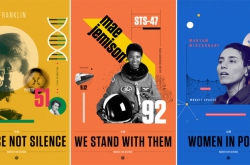A new study by researchers at the Northwestern University, US, finds interesting collaboration patterns and suggests that the playing fields in some disciplines are not as level as they appear.
Collaboration plays an increasingly important role in promoting research productivity and impact. What remains unclear is whether female and male researchers in science, technology, engineering, and mathematical (STEM) disciplines differ in their collaboration propensity, argue researchers at Northwestern University. Their paper published "Differences in Collaboration Patterns Across Discipline, Career Stage, and Gender" was published 4 November in the open-access journal PLOS Biology.
"We find that female faculty have significantly fewer distinct co-authors over their careers than males, but that this difference can be fully accounted for by females' lower publication rate and shorter career lengths," note the researchers in their abstract.
They also state that female scientists have a lower probability of repeating previous co-authors than males, an intriguing result because prior research shows that teams involving new collaborations produce work with higher impact. They also note the evidence for gender segregation in some sub-disciplines in molecular biology, in particular in genomics where we find female faculty to be clearly under-represented.
"Our findings in molecular biology, particularly genomics, are what surprised us the most," said LuÃs Amaral, a professor of chemical and biological engineering in the McCormick School of Engineering. "There is a lot of research money in this high-profile area, and women are not represented proportionally. This raises all sorts of questions as to what kind of cultural environment has been created in the field."
The data analysis of the complete publication records of nearly 4,000 faculty members in six STEM disciplines (engineering, chemistry, ecology, materials science, molecular biology and psychology) at top research universities across the country.
"We want to understand ways in which males and females live different experiences in STEM disciplines, so that a level playing field can be created where needed," Teresa K. Woodruff, a Northwestern Medicine reproductive biologist.




